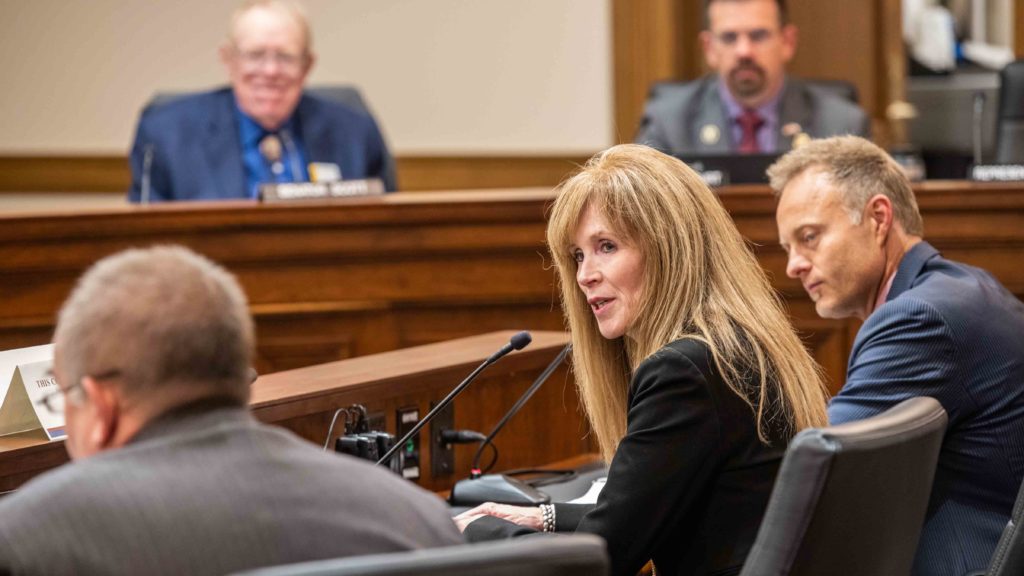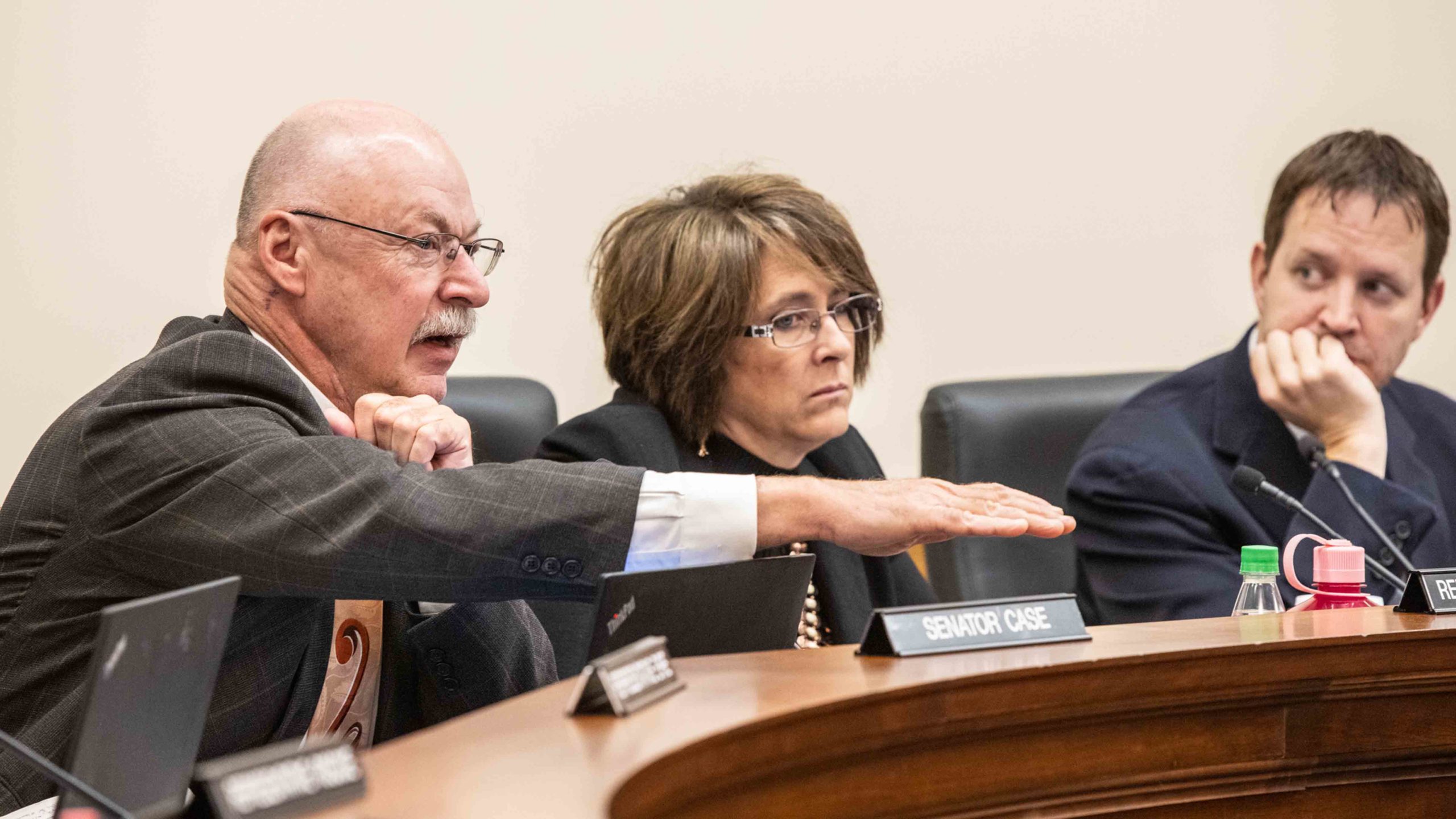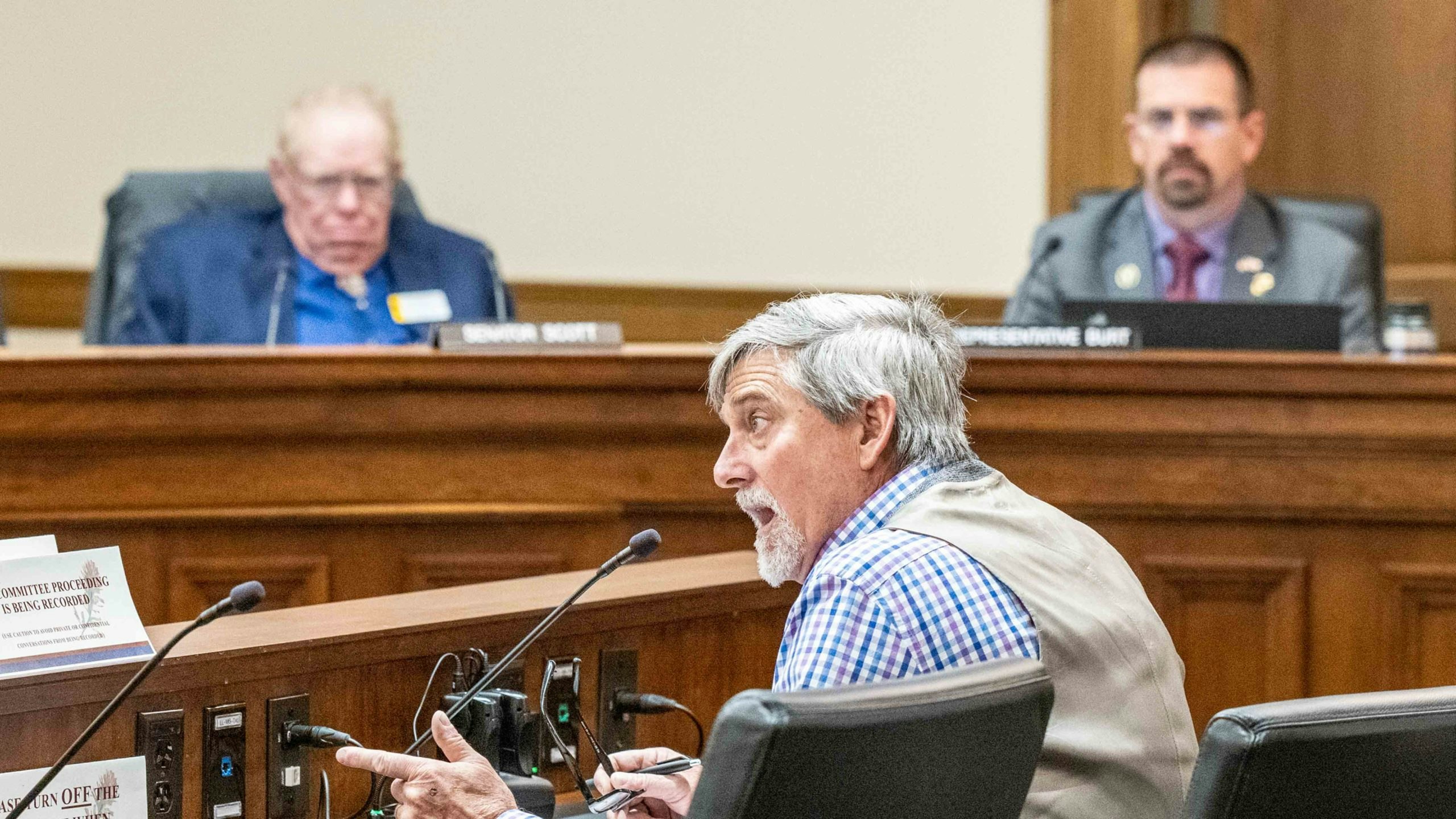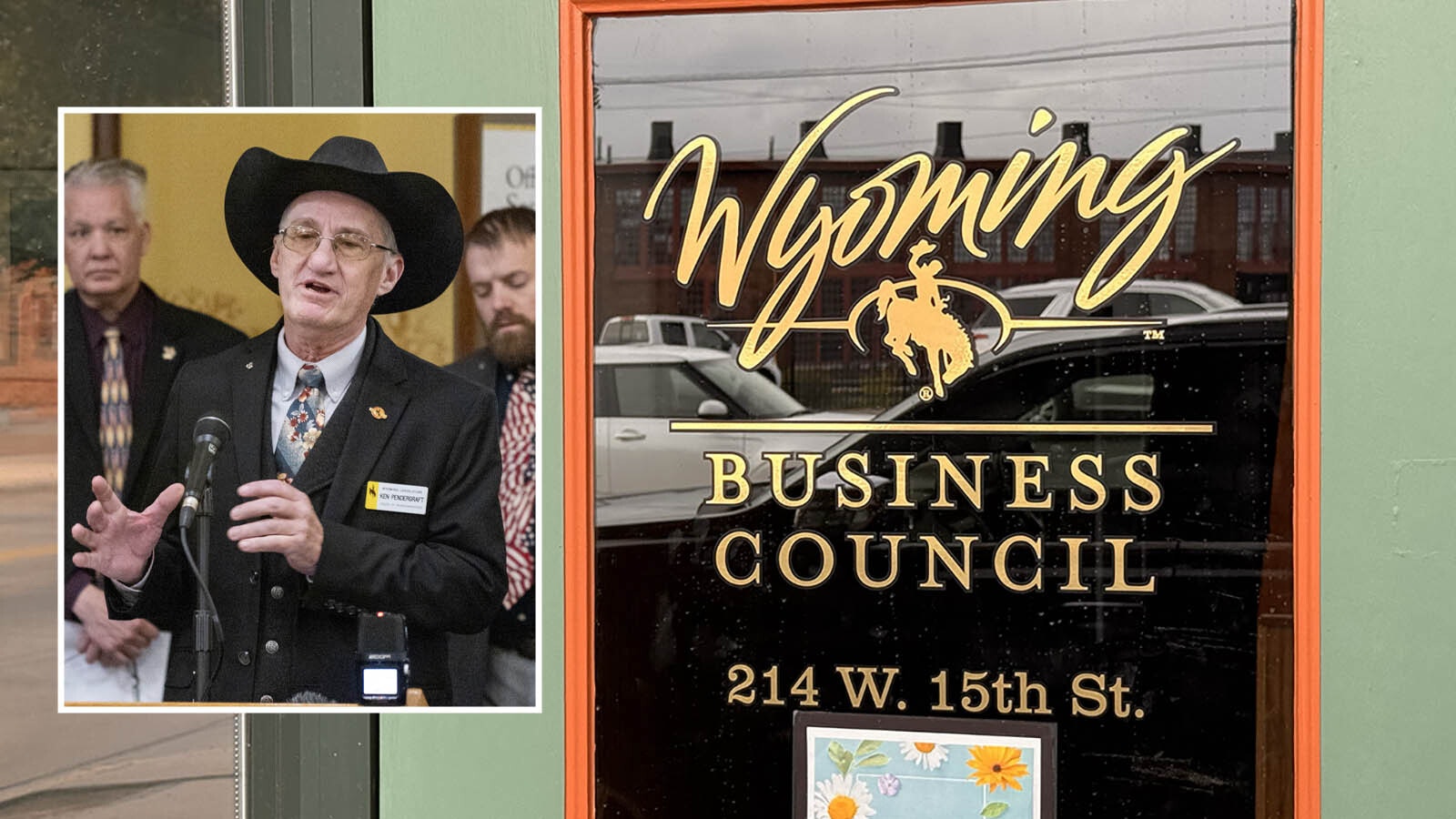By Leo Wolfson, State Political Reporter
Leo@Cowboystatedaily.com
Discussion about federally certifying Wyoming’s election equipment Friday morning grew heated when addressing the security of the state’s elections and voting machines.
The Corporations, Elections and Political Subdivisions committee passed a draft bill Friday that codifies the secretary of state’s rules for certification of electronic voting systems and aligns it with federal regulations.
Under the bill, a voting machine vendor serving Wyoming must provide proof that its electronic system has been certified and meets the voluntary voting system guidelines adopted by the U.S. Election Assistance Commission.
The certification passed on a 12-1 vote of the committee.
Kai Schon, state election director, said federally certifying machines is not a new procedure and the bill would simply formalize this step into law.
“Security is a huge concern for good reasons, this keeps us on the cutting edge,” Schon said.
Schon’s comments did not alleviate concerns for some of the roughly 50 people in attendance and more than 100 people attending live through virtual mechanisms.
Jonathan Lange, a pastor from Evanston, said any changes to federal guidelines would subjugate Wyoming to having to cooperate with those changes.
“We’re making some potential huge changes in Wyoming voting law without coming to a (statewide) vote,” he said.
Count Ballots By Hand
Cheyenne resident Dan Odom, who described himself as “no expert” on voting equipment, said the state needs to go back to using paper ballots in elections.
“If it’s on paper it’s less likely to be tampered with,” he said. “I just firmly believe an ink pen and paper is the way to go.”
A proposal was brought before the Park County Commission in the spring requesting a hand-count audit of that county’s 2020 election. The commissioners and county attorney eventually rejected the request.
State Sen. Charles Scott, R-Casper, said hand-counted ballots, used prior to the 1960s in Wyoming, also were not free of issues, mentioning a dispute he witnessed with one ballot and who the voter intended to vote for.
“I did see one recount where the results were altered because of a disupute and how the paper ballots were counted,” he said. “It’s hard to find a system that truly is perfect.”
Sen. Cale Case, R-Lander, questioned Odom how paper ballots are more secure than digital ones.
“I know anytime humans are involved, you have to prepare for someone to try to cheat,” Odom said. “With paper ballots, if they weren’t protected from being swapped out that could be a possibility.”
But he also said it’s harder to destroy paper ballots than “to make a couple keystrokes on a computer.”
Rep. Marshall Burt, L-Green River, said fraud could happen with paper ballots containing undervotes, races where a voter doesn’t vote for any candidate.
“How do we know those votes aren’t being tampered with just because they’re on papers?” he asked.


Security Concerns
Kathy Russell, executive director of the Wyoming Republican Party, testified Friday that the coding in voting machines creates problems because it is extremely hard to decipher. She said electronic machines are great for efficiency but not for security.
Russell indicated an audit where randomly selected voters would be asked to confirm with officials the identity of their ballots would alleviate some concerns.
The committee didn’t express much interest in the idea, which would remove the guarantee of privacy for voters.
The Republican National Committee has investigated more than 60 lawsuits regarding elections, and a vast majority were thrown out of court for lack of standing.
Russell said three people admitted to her they committed voter fraud by voting in multiple states, including Arizona and Wyoming. She said she didn’t report the people to authorities because they didn’t give her their names.
Potential For Fraud
Jeanette Ward, the Republican nominee for House District 57, said attempts by certain members of the Corporations Committee to weaken the powers of the next secretary of state, largely expected to be state Rep. Chuck Gray, R-Casper, are “palpable.”
Gray attended the meeting but did not speak.
State Rep. Dan Zwonitzer, R-Cheyenne, chair of the Corporations, Elections and Political Subdivisions Committee, in August proposed a bill that would have stripped future secretaries of state from their power to oversee Wyoming elections. On Friday, he asked if the certification bill could give the secretary of state authority to unilaterally remove all electronic voting equipment.
Schon said this could not happen, as all equipment would have to be federally certified at some point.
“Our election equiptment is not connected to the internet,” he said, bringing a few doubtful chuckles from the audience. He also said the state’s equipment is not connected to modems any other wireless devices.
Mark Armstrong, a candidate for secretary of state and the recent interim secretary of state appointment, said he has concerns about the ballots put into machines. He wants absentee ballots to be processed fewer days before an election and thinks there should be a higher bar for being able to get an absentee ballot.
“All studies have shown, that I’ve read, that absentee ballots are the major source of fraud in elections,” he said.
Richard Ong, an Evanston attorney, said the state should move off electronic equipment entirely, but could not provide any examples of equipment being compromised in Wyoming. He also said the elctronic voter rolls have not been property examinined in Wyoming, as other states allegedly had issues of over-registration of voters.
Case found fault with this claim, saying there have no been criminal charges filed about the allegations.
“A lot of this is very anecdotal,”Case said. “No one has seen the proof yet.”


Mitigate The Risk
Cheyenne resident Matt Freeman, a Constituion Party candidate in House District 41, said what he sees as more of a national problem with election equipment could become a local one if Wyoming doesn’t get ahead of it by addressing election integrity on a state level.
Freeman said he saw many Colorado license plates in the parking lots of local voting centers on Aug. 16 for the Wyoming primary, as well as Colorado identification cards being used, describing these as “anomolies.” He also said he saw ballots left on top of voting machines and heard of a poll watcher being sent home before the poll closed.
“If we’re going to err, let’s err on the side of caution,” he said. “These are things that aren’t being taken care of.”
Poll watcher Lilia Olejnik addressed the committee and said she was instructed to leave while people were voting. Olejnik ran as a Republican Party precinct committeewoman in Laramie County in the primary.
Case commended Olejnik for filing a complaint about the issue, but said he doesn’t see it as evidence of “rampant election fraud.”
Freeman did not participate in any of the information sessions former Secretary of State Ed Buchanan offered this summer, has not directly talked to any election officials about his allegations, and has not volunteered to work in any elections himself.
He acknowledged there will always be some level of fraud in elections, but said it should be minimized as much as possible.
Support
Mary Lankford with the Wyoming County Clerks Association said her organization supports the election certification bill.
“This is critical to ensure that we have good, quality elections,” she said.
Interim Secretary of State Karl Allred said testing electronic equipment is highly labor intensive.
“Quite frankly, we don’t have the staff to do the type of testing on this,” he said.
He supports an amendment to ensure that the software the vendors are approved for on a federal level must be the same used at a state level. Allred said having all machines certified is the best solution for what he sees as a difficult problem.
“There is no perfect system as long as we have humans,” he said.





